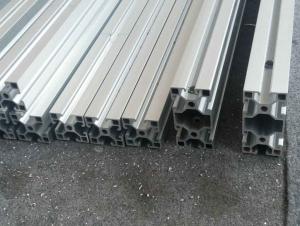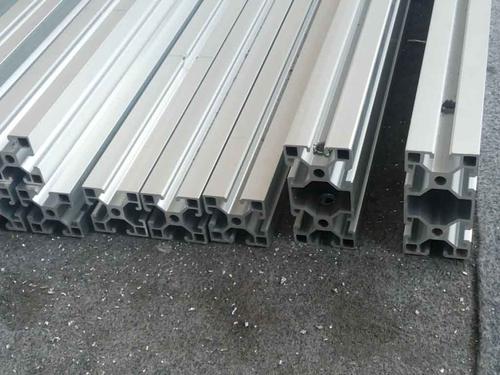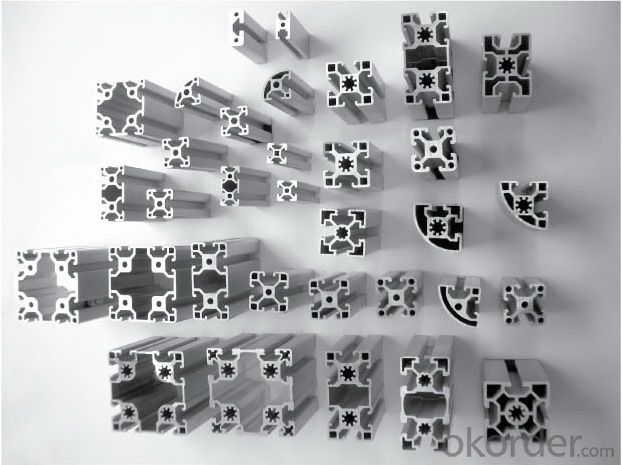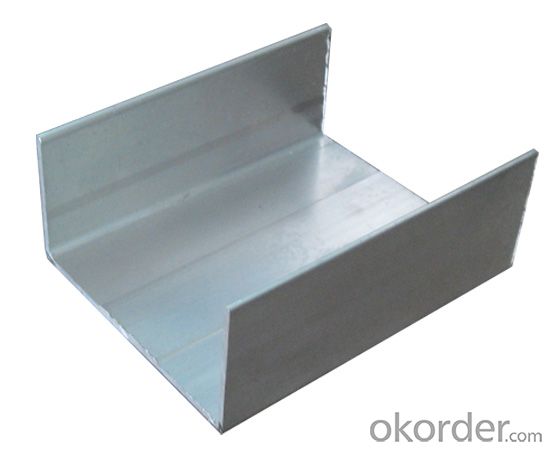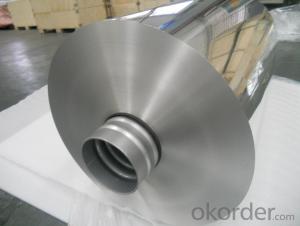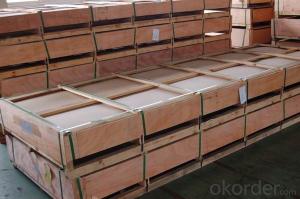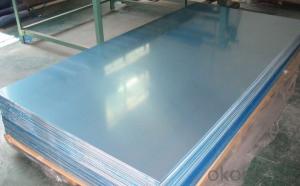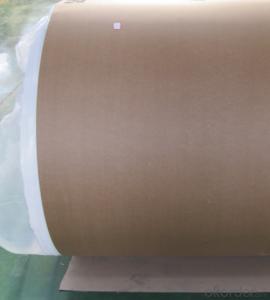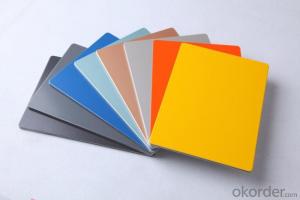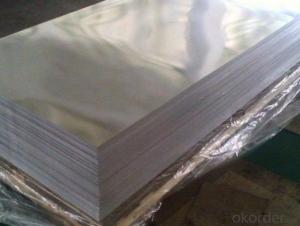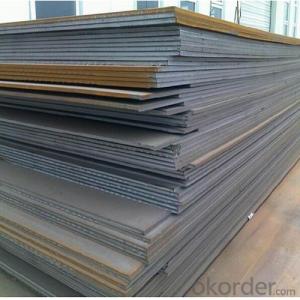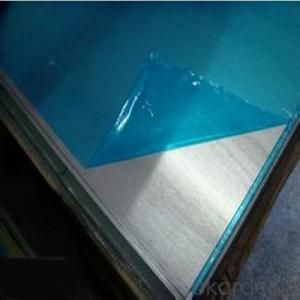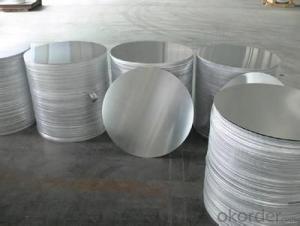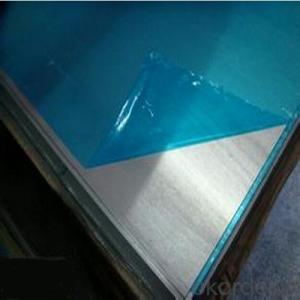Lightweight Aluminum Sheets for Construction Application
- Loading Port:
- Shanghai
- Payment Terms:
- TT OR LC
- Min Order Qty:
- 5 m.t.
- Supply Capability:
- 1000 m.t./month
OKorder Service Pledge
OKorder Financial Service
You Might Also Like
Specification
Structure of Aluminium Profile for Construction Application Description:
Coated aluminum coil/sheet are of a wide range of colors, which gives wonderful appearance no matter in residential and commercial constructions of great exhibition centers.
The coated aluminum coil/sheet have been widely used in the fields of construction and decoration( garage doors, ceiling etc.), electronic appliances, lighting decoration, air-condition air pipes, sandwich panels and drainages etc.
Main Features of the Aluminium Profile for Construction Application:
1) High flexibility
2) Impact resistance
3) Excellent weather-proof durability
4) Anti-ultraviolet
5) High erosion resist
Images of Aluminium Profile for Construction Application:
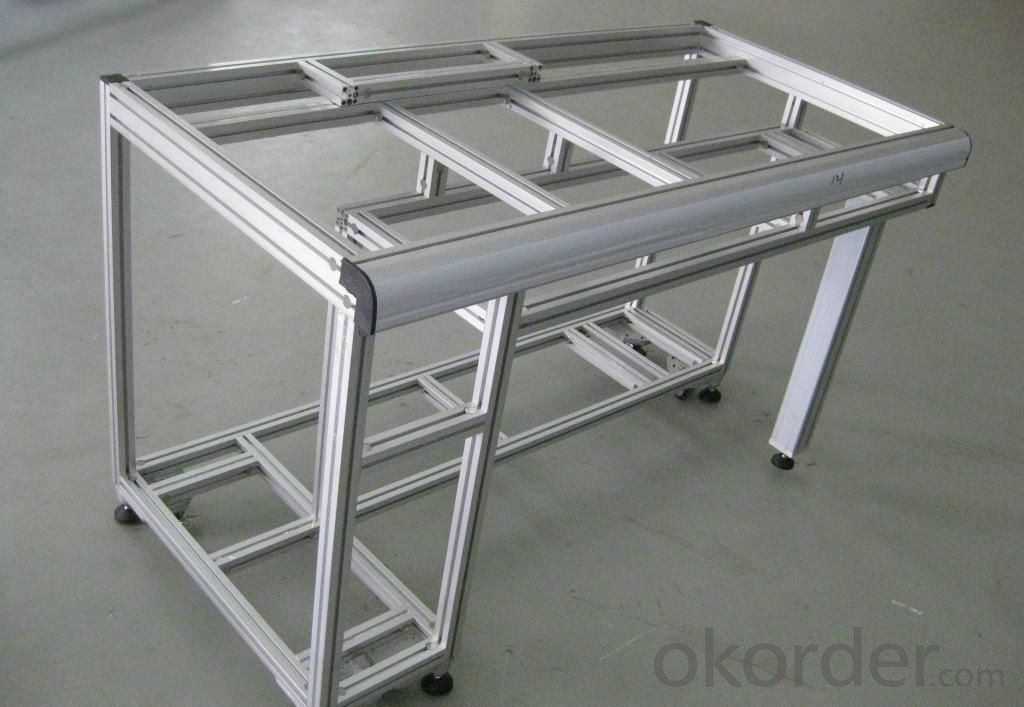
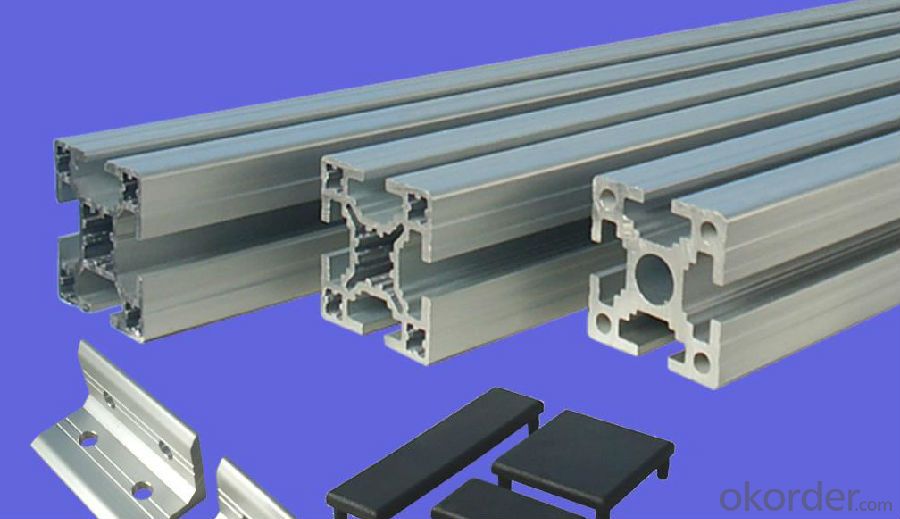
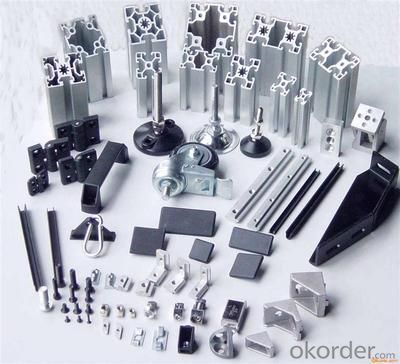
Aluminium Profile for Construction ApplicationSpecification:
Alloy | A1100,A3003,A1050,A8011 etc |
Temper | H16,H18,H24 |
Thickness | From 0.024mm to 1.2mm |
Width | Standard width:1240mm |
Special width:1300mm,1520mm,1570mm,1595mm | |
Diameter | Standard dia:1200mm |
Interior dia:150mm,405mm,505mm | |
Weight | 2.5 T/coil,3.0 T/coil |
Coating | PE, PVDF, AC |
Surface | Embossed, mill finish, coated |
Color | AS to code RAL |
Gloss | 10-90%(EN ISO-2813:1994) |
Coating Thickness | PE: more than 18 micron |
PVDF: more than 25 micron | |
Coating Hardness (pencil resistance) | More than 2h |
Coating adhesion | 5J(EN ISO-2409:1994) |
Impact Resistance | No peeling or cracking(50 kg/cm,ASTMD-2794:1993) |
Flexibility (T-bend) | 2T |
MEK resistance | More than 100 |
FAQ:
a.What is monthly capacity
---CNBM is one stated own company and our monthly capacity is about 2000tons.
b. Now which countries do you export your goods?
---Now we export to South East Asia,Africa, North America,South America ect.
- Q: Is it possible to substitute traditional wooden windows and doors with aluminum sheets?
- <p>Yes, you can use aluminum sheets to replace traditional wooden windows and doors. Aluminum is a popular choice due to its durability, low maintenance, and resistance to weather and pests. It also offers good thermal performance and can be designed to mimic the appearance of wood. However, it's important to consider factors like insulation, cost, and the specific design requirements of your project before making the switch.</p>
- Q: How does the thickness of aluminum sheet affect its formability?
- The thickness of an aluminum sheet has a significant impact on its formability. Generally, thinner sheets of aluminum are more malleable and easier to shape compared to thicker sheets. This is because thinner sheets have lower resistance to deformation and require less force to bend or stretch. Thicker aluminum sheets, on the other hand, have higher resistance to deformation and are less malleable. They require more force and energy to shape, and may be more prone to cracking or tearing during forming processes. Thicker sheets also have a higher likelihood of experiencing springback, where the material partially returns to its original shape after being formed. The formability of aluminum sheets is also influenced by the alloy composition and the specific forming process being used. In some cases, certain alloy compositions or heat treatments can enhance the formability of thicker sheets, making them easier to shape. In summary, the thickness of an aluminum sheet directly affects its formability. Thinner sheets are generally more malleable and easier to shape, while thicker sheets require more force and are less malleable. The alloy composition and specific forming processes being used can also impact the formability of aluminum sheets.
- Q: i want to a material which is similar in properties like aluminium which has similar casting properties and easily available.
- It depends on what properties you are interested in. If you want specific answers, you need to ask specific questions. The previous answerers are not very well informed... There are, in fact, many excellent Al based casting alloys. And... cast alloys of brass, pot metal, lead, etc are not very similar to Al (but, again, it depends on specifically what properties you want). Consult your friendly neighborhood metallurgist but think about exactly what characteristics you need to have. The more completely you can define your requirements, the better someone can advise you on the pros and cons of different material selections.
- Q: Can aluminum sheets be used for architectural facades?
- Yes, aluminum sheets can be used for architectural facades. Aluminum is a lightweight and durable material that is commonly used in construction due to its corrosion resistance and versatility. It can be easily shaped, cut, and formed into various sizes and designs, making it suitable for creating aesthetically pleasing architectural facades. Additionally, aluminum sheets offer excellent weathering properties, low maintenance requirements, and can be finished with different coatings to enhance their appearance and protection against environmental elements.
- Q: Can the aluminum sheets be used for manufacturing food packaging?
- Yes, aluminum sheets can be used for manufacturing food packaging. Aluminum is a popular choice for food packaging due to its non-reactive nature, resistance to corrosion, and ability to maintain the freshness and quality of food products.
- Q: I'm working on a costume that's entirely made of cardboard (it's a giant robot), and I was wondering What's the best way to1 turn Soda cans into aluminum sheeting2: attach the aluminum everywhere on the robot3. Attach the aluminum to the aluminumThank you in advance.
- You are going to hate this answer: because the answer is: It depends. Without further details of what you are trying to accomplish its hard to know. 1: For instance if you are just trying to get small sheets of aluminum...cut off the top and bottom with scissors and one straight line down the middle. But if you are looking for something more accurate you may need to use a press or just buy sheets 2: Again, without knowing details its hard to say...perhaps you should use ducktap and layer the aluminium onto the cardboard like scale armor 3: you could use glue I guess....or do a weak weld...or if you scaled the aluminum then you wouldn't ahve to connect the aluminum to itself only to the cardboard. But it all depends on how quality you want the project to look...and what you want the end product to look like. But since you are talking about cardboard and cans I'm guessing scaling the aluminum with duck tape should work for you.
- Q: Can aluminum sheets be textured for grip?
- Yes, aluminum sheets can be textured for grip. There are various methods to create texture on aluminum sheets, such as embossing, etching, or applying a non-slip coating. These processes can add patterns, grooves, or raised bumps to the surface of the aluminum sheet, enhancing its grip and making it suitable for applications where slip resistance is important. The textured surface increases friction between the sheet and any object in contact with it, providing a secure grip even in wet or slippery conditions.
- Q: The diameter of a hole drilled through aluminum at 22°C is 7.50 mm. Find the diameter and the area of the hole at 89°C.
- If i was once you, i might depart a small 1cm gap on the high and cover it with mesh - these round ones don't appear to allow a lot air flow in any respect in my viv and i have three... I have a tendency to simply leave the glass open a bit of at both aspect. You'll have got to use a great mesh although to stop bugs escaping via it. BTW - i think you will have to make it slightly deeper... 1.5 at least in case you are maintaining reps a good way to grow to 12inch plus.
- Q: What paint is better to paint on the brushed aluminum sheet? Simple process and good adhesion!
- As long as it is spray paint, adhesion is not the same, if you want to firm, it is better to paint
- Q: This question asks for the common types of aluminum sheet windows and doors that are available in the market.
- <p>Common types of aluminum sheet windows and doors in the market include sliding windows, casement windows, fixed windows, and awning windows. For doors, there are sliding doors, swing doors, folding doors, and automatic doors. Each type has specific features and applications, such as sliding windows being space-saving and easy to operate, while casement windows offer better ventilation. Sliding doors are popular for their smooth operation and minimal space requirement, and swing doors are traditional and widely used for their durability and security. These aluminum products are valued for their strength, durability, and low maintenance requirements.</p>
Send your message to us
Lightweight Aluminum Sheets for Construction Application
- Loading Port:
- Shanghai
- Payment Terms:
- TT OR LC
- Min Order Qty:
- 5 m.t.
- Supply Capability:
- 1000 m.t./month
OKorder Service Pledge
OKorder Financial Service
Similar products
Hot products
Hot Searches
Related keywords
